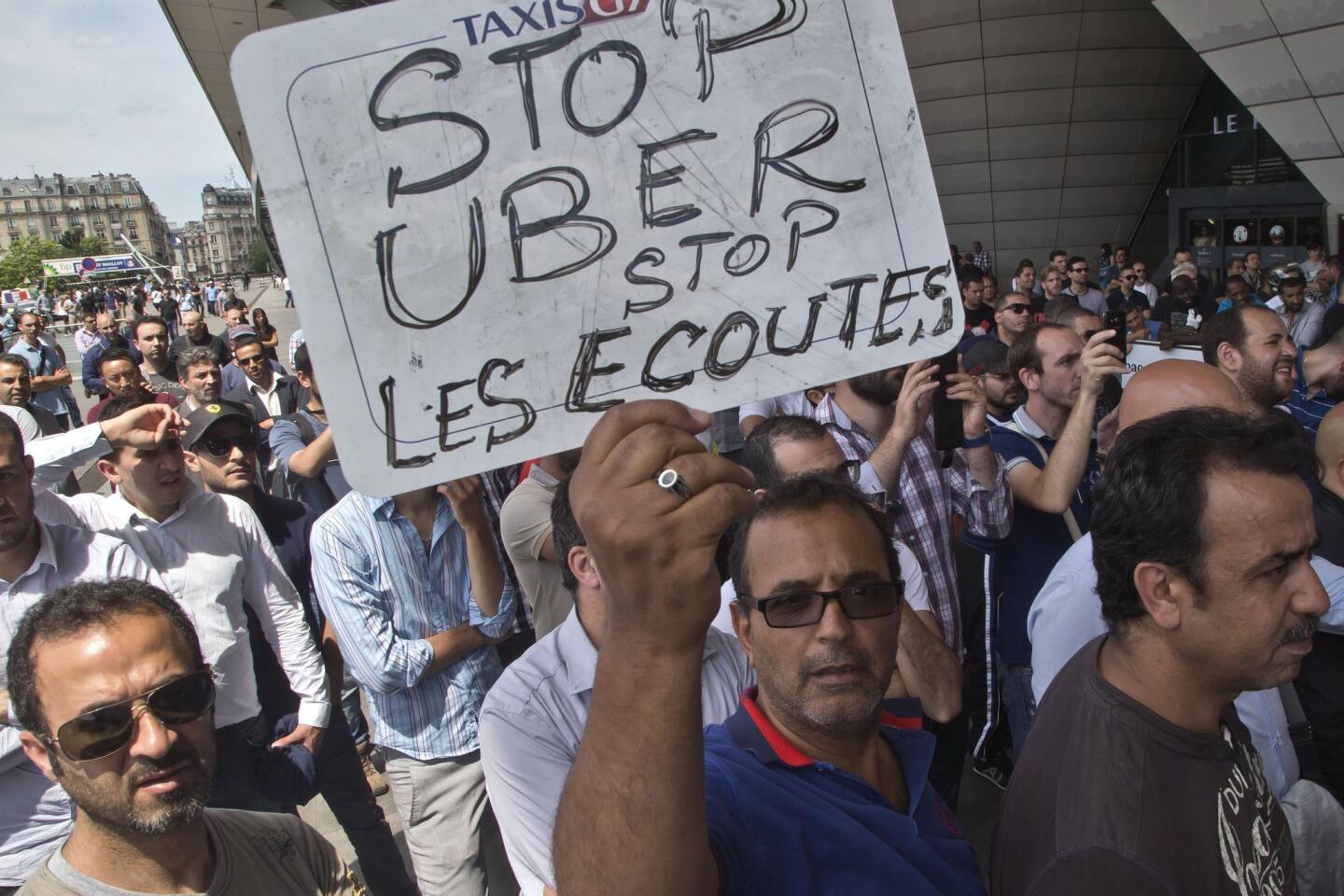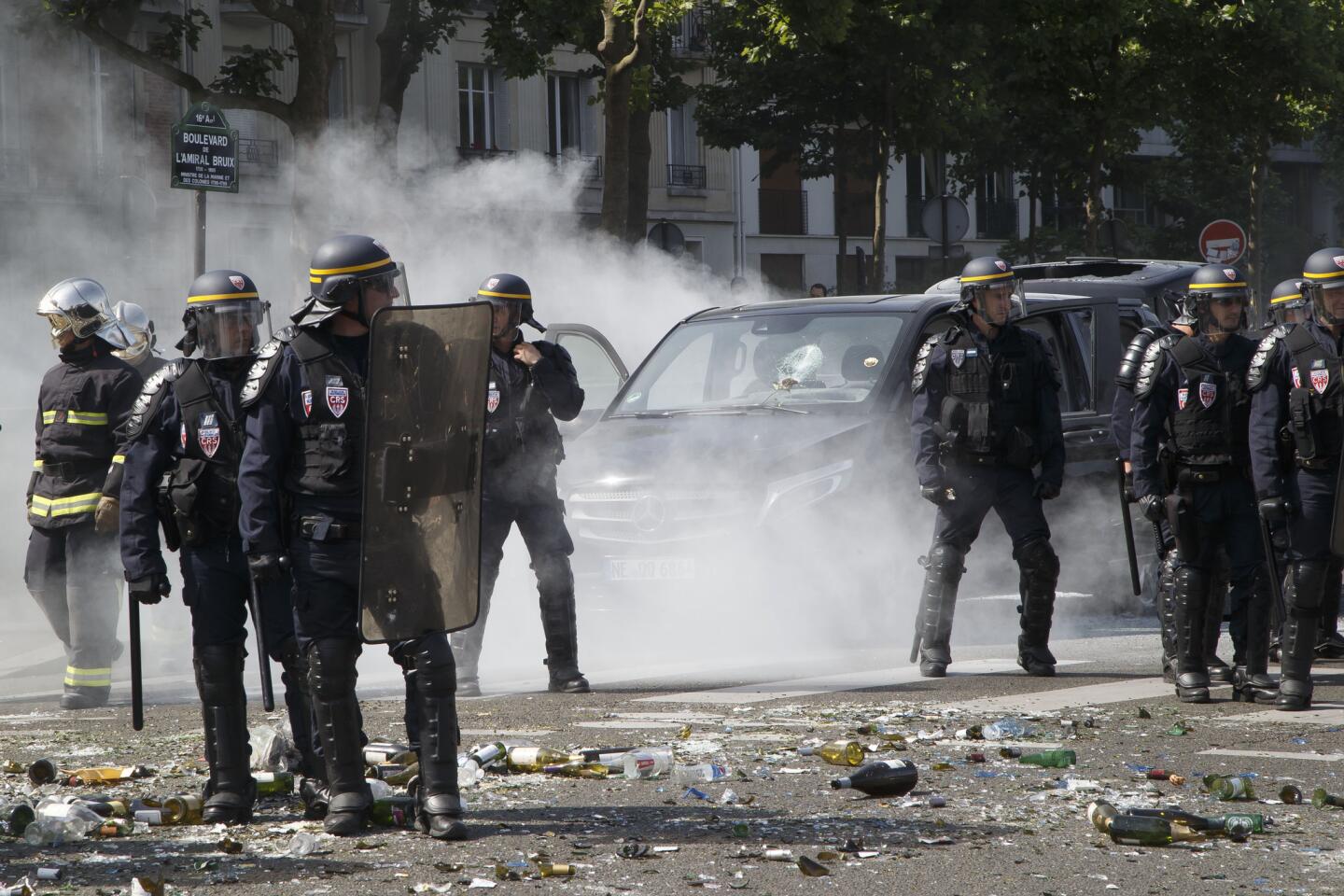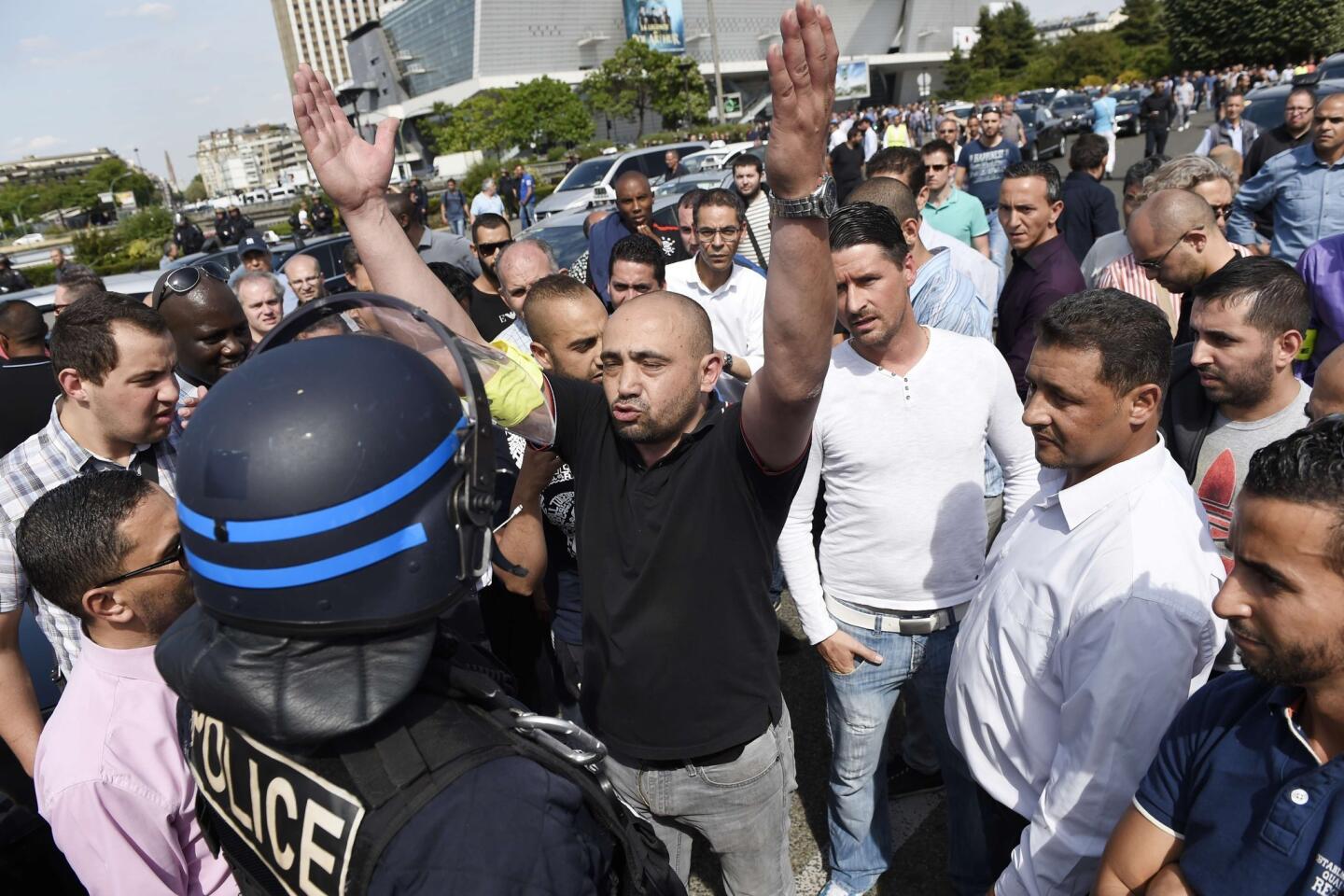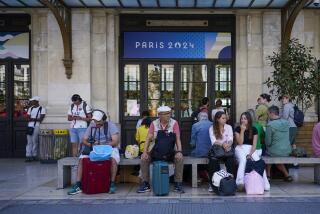Anti-Uber protests turn violent in France
- Share via
Reporting from Paris — French taxi drivers overturned cars, burned tires and blocked access to airports and train stations in a second day of violent protest Thursday against competition from the ride-sharing service Uber.
Hundreds of licensed cabbies, who say competition from the popular service is cutting into their income and threatening their jobs, converged on cities to stage demonstrations as part of a nationwide strike.
In Paris, riot police fired tear gas to clear protesting drivers from one of the main entrance roads to the city on the “péripherique” ring road.
The protests came after weeks of rising tension over the San Francisco-based service, which continues to operate despite a law clamping down on its operations.
French taxi unions accuse Uber -- and particularly the UberPOP service, which connects passengers to a network of nonprofessional drivers -- of ignoring court rulings, and complain police have turned a blind eye to the operation.
Uber has appealed against the judgments and is awaiting a final decision from France’s constitutional court, which began deliberating on the matter Tuesday.
Taxi drivers pay up to $270,000 to obtain their licenses, which unions complain amateur drivers don’t have to pay. Many of these drivers don’t pay taxes and social charges, either, according to the unions. This, they contend, gives Uber drivers an unfair advantage.
“We are faced with permanent provocation [from Uber],” Serge Metz, the head of the taxi company G7, told French television. “There can be only one response: a firm and systematic seizure of offending vehicles.”
Uber argues that the taxi drivers are an outdated lobby fixed on defending their monopoly at the expense of customer needs. Visitors to Paris frequently complain of having trouble finding an official taxi.
Uber is estimated to have around 400,000 French customers a month, but is facing legal challenges across Europe.
Among those caught up in the violence was actress-musician Courtney Love, whose car was attacked by anti-Uber protesters in Paris. Love took to social media to describe how the vehicle she was traveling in was ambushed.
“They’re beating the cars with metal bats. This is France?? I’m safer in Baghdad,” she tweeted.
In another tweet, Love lambasted the French president: “Francois Hollande where are the ... police??? is it legal for your people to attack visitors? Get your ass to the airport. Wtf???”
The singer later added that she had been “scared out of her wits.”
An estimated 2,800 taxi drivers took part in the strike, setting up around 30 roadblocks across France, including on roads leading to Paris’ Charles de Gaulle and Orly airports. Some visitors had to walk between terminals and along busy roads to catch flights and trains.
There were reports in the French media of gangs of taxi drivers hunting down drivers they suspected of operating for Uber at the two airports and of attacks on some private-hire cars and even licensed taxis that were not taking part in the protests.
In the eastern city of Strasbourg, there were reports of taxi drivers posing as Uber customers to lure drivers to isolated spots where they and their vehicles were attacked. [Link in French]
Thomas Meister, an Uber spokesman, described the assaults as “totally scandalous” and the “actions of yobs.”
“It’s a small minority of taxi drivers who are not doing their profession any favors,” he said.
France’s interior minister, Bernard Cazeneuve, has called for a nationwide legal clampdown on UberPOP, citing the “serious public order disturbances and development of this illegal activity.”
Meister accused the minister of disregarding the normal legal process.
“The way things work in a state of law is that it’s for the justice to judge whether something is illegal or not,” Meister told French journalists.
In October, France passed a law banning any service that puts passengers in touch with unregistered drivers. Uber has contested the measure, saying it is counter to business freedom.
Willsher is a special correspondent.
More to Read
Sign up for Essential California
The most important California stories and recommendations in your inbox every morning.
You may occasionally receive promotional content from the Los Angeles Times.














